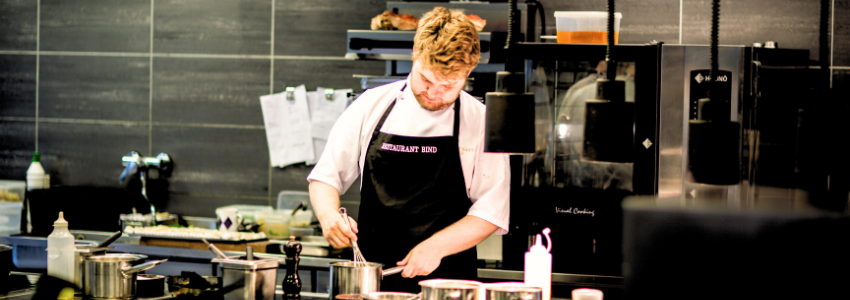While both an agency chef and a freelance chef may work in similar environments and perform similar duties, there are some notable differences between the two.
An agency chef is typically an employee of a staffing agency that provides temporary or permanent placement of culinary professionals to businesses in need of their services. The agency takes care of finding jobs for the chef and handles all the administrative tasks associated with employment, such as payroll, taxes, and benefits. The chef works under the agency’s supervision and may be required to follow specific guidelines set by the agency.
On the other hand, a freelance chef is self-employed and works directly with clients on a project-by-project basis. They are responsible for finding their own clients, negotiating rates, and managing their own administrative tasks such as invoicing and taxes. Freelance chefs have more flexibility in their schedules and can choose the projects they want to work on.
Another key difference between the two is their level of experience. Agency chefs are typically less experienced than freelance chefs, as they are often just starting their careers and using agency work to gain experience and exposure to different kitchens. Freelance chefs, on the other hand, have usually spent years working in various kitchens and have built a solid reputation in the industry.
Overall, while there are similarities between agency and freelance chefs, the main differences lie in their employment status, level of experience, and the way they operate within the industry.
What is an Agency chef?
An agency chef is a culinary professional who works for a staffing agency that provides temporary or permanent placement of chefs to businesses in need of their services. These agencies are responsible for finding jobs for chefs, managing their payroll and taxes, and providing benefits and insurance.
The main benefit of being an agency chef is the flexibility it offers. Chefs can work on a project-by-project basis, allowing them to gain experience in a variety of kitchens and cuisines. They can also choose their own schedule and have more control over their work-life balance.
The responsibilities of an agency chef vary depending on the needs of the client. Some may be hired to fill in for a chef who is on vacation or sick leave, while others may be brought in to help during busy periods or special events. Agency chefs must be able to quickly adapt to new kitchens and work environments, as they may be placed in different settings frequently.
While agency chefs may have less job security than their full-time counterparts, the experience they gain working with different kitchens can be invaluable in developing their skills and building their reputation in the industry. It can also lead to networking opportunities and potential job offers from clients they work with.
Overall, agency chefs offer a flexible solution to businesses in need of culinary professionals, while also providing chefs with opportunities for experience and growth in their careers.

Some of my articles may contain affiliate links, which means I earn a small commission at no extra cost to you but it does help me with the running costs. As an Amazon Associate, I will earn commissions on purchases but this does not affect my reviews on products or services.
What is a freelance chef?
A freelance chef is a self-employed culinary professional who offers their services to clients on a project-by-project basis. Freelance chefs are responsible for finding their own clients, negotiating rates, and managing their own administrative tasks such as invoicing and taxes.
The main benefit of being a freelance chef is the freedom and flexibility it offers. Chefs can choose their own projects, set their own schedules, and have more control over their work-life balance. Freelance chefs can also work on a variety of projects, which can help them gain experience in different kitchens and cuisines.
Freelance chefs offer their services to a variety of clients, including private individuals, restaurants, catering companies, and event planners. They may be hired to provide services such as menu planning, food preparation, cooking, and presentation. Freelance chefs must be able to quickly adapt to different kitchens and work environments, as they may be hired for short-term projects.
One of the biggest challenges for freelance chefs is finding consistent work. It requires strong networking skills and a solid reputation in the industry. Freelance chefs must also be able to manage their own finances, including setting rates, invoicing clients, and paying taxes.
Overall, being a freelance chef can offer a rewarding and fulfilling career path for culinary professionals who are entrepreneurial, adaptable, and have strong networking skills. It allows them to have more control over their work-life balance and gain valuable experience working in a variety of settings.
Great T.shirt

What do I need to become a freelance chef in the UK?
Becoming a freelance chef in the UK can be a challenging but rewarding career choice. If you are passionate about cooking and have experience in the culinary industry, then you may have what it takes to become a successful freelance chef.
To get started as a freelance chef in the UK, you will need to have a few key things in place. First and foremost, you will need to have the necessary culinary skills and knowledge. This means having a strong understanding of food preparation and cooking techniques, as well as knowledge of food safety and hygiene standards.
The next thing you will need to do is apply for your UTR (unique tax reference) number, which you can do quite easily online from the GOV.UK website. You will also need a minimum Level 2 Food Hygiene & Safety (Catering), This can be done online and will cost around £10.00. In certain circumstances, you may also need public liability insurance but if you are working through an established agency they will normally already have one set in place.
Once you have the necessary culinary skills and knowledge, you will need to build a network of clients. This can be done by reaching out to local restaurants, catering companies, and other food-related businesses, as well as by advertising your services online or through social media. Signing up with recruitment agencies as self-employed is maybe the easiest option when starting out and will get you plenty of work opportunities.
It’s also important to have a good understanding of the business side of being a freelance chef. This includes setting competitive prices for your services, managing your finances, and building a strong reputation through positive reviews and word-of-mouth recommendations.
Overall, becoming a freelance chef in the UK requires a combination of culinary expertise, business acumen, and a strong work ethic. With dedication and hard work, however, it can be a rewarding and fulfilling career choice for those with a passion for cooking.




